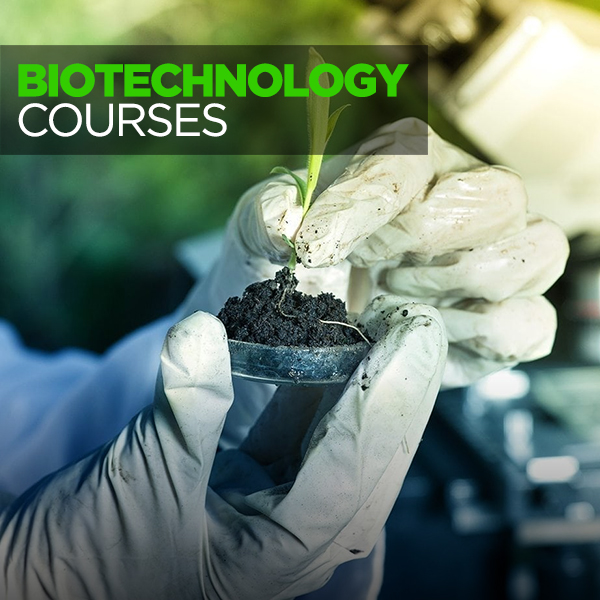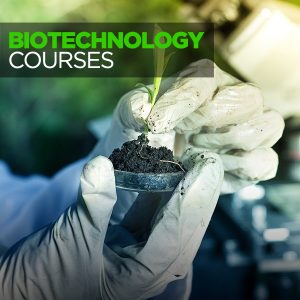
Biotechnology Courses

Biotechnology Engineering is a discipline which is a combination and amalgamation of various engineering concepts with biology for research and development. Typically, it includes the study of bio-organisms, micro-organisms, cell functions along with few other related topics engineered in a manner to provide for calculated end results.
Biotechnology Engineering is the best course to equip a student for this field. It is used in the fields ranging from animal husbandry, agriculture, energy production, pollution control, environment conservation to development of medicines, vaccinations, fertilizers and insecticides.
Biotechnology Engineering has expanded in various specializations as the following:
Genetics
- Genetic engineering is alternatively known as genetic manipulation or modification
- It is the process where organism’s genes are directly manipulated using biotechnology.
- Genetic engineering has applications is various branches such as animal husbandry, surgery, agriculture, etc. It has also enabled to help increase the yield of farming and quality of produce.
Virology
- Virology is a branch that falls under the study of biotechnology that encompassing topics ranging for virus biology, its structure, functions to interaction with the host.
Virology comprises of the following:
- Origins perspective that deals with the study from an evolutionary perspective
- Ecological perspective that deals with the study of viruses along with their role in the ecosystem.
- Human and animal health perspective involves the study of viruses with respect to human and animal health. It covers aspects such as per-clinical and clinical research into disease causing viruses – epidemiology, immunology, virus-host interaction and biochemical
Ecology
- Ecology can be termed as the study of the ecosystem.
- It comprises of complex interactions amongst plants and animals living under the soil to check its effect on the atmosphere.
- An ecologist is responsible to study the interaction between different organisms existing in an ecosystem.
- The study done by an ecologist enables to understand the world better by managing natural resources wisely.
Biophysics
- Biophysics is a field which includes methods of physics, study of biological system
- It encompasses biological organization, molecular to organismic and its populations.
Biostatistics
- Biostatistics is a field that includes statistical application using biological concepts.
- It consists of the design of biological experiments, collecting and summarizing experiments along with its analysis and interpretation.
Pharmacology
- Pharmacology is defined as the study of drug actions that involves understanding the interaction of chemical substance with our bodies. Additionally, it also identifies ways by which our biological system affects drug.
Microbiology
- Microbiology is the branch that deals with the study of small living organisms such as bacteriology, virology, mycology, physiology, parapsychology, and other branches of biology.
With the perfect amalgamation of biology with use of technology to gain results needed from the inputs provided, a student may wish to consider Biotechnology as the field of their choice as the scope of growth here shall probably never cede.



